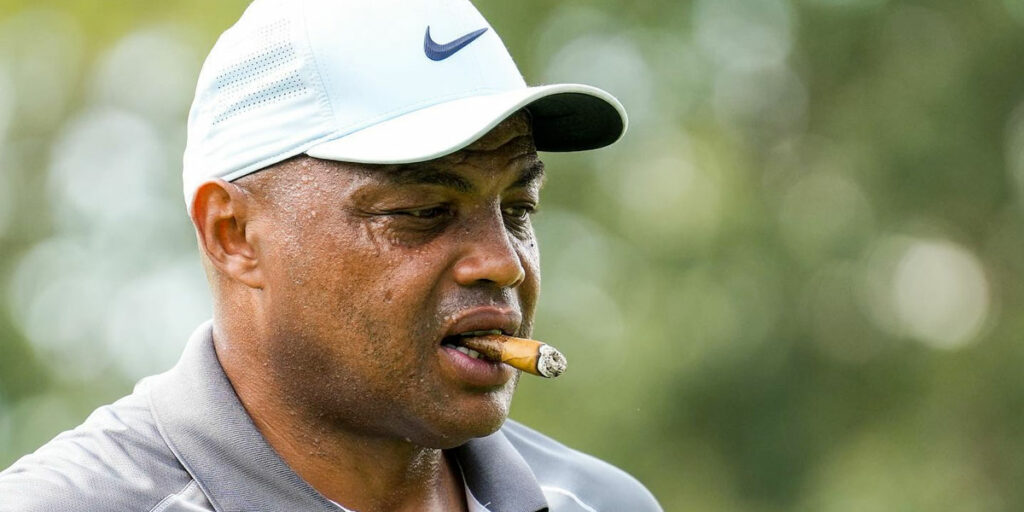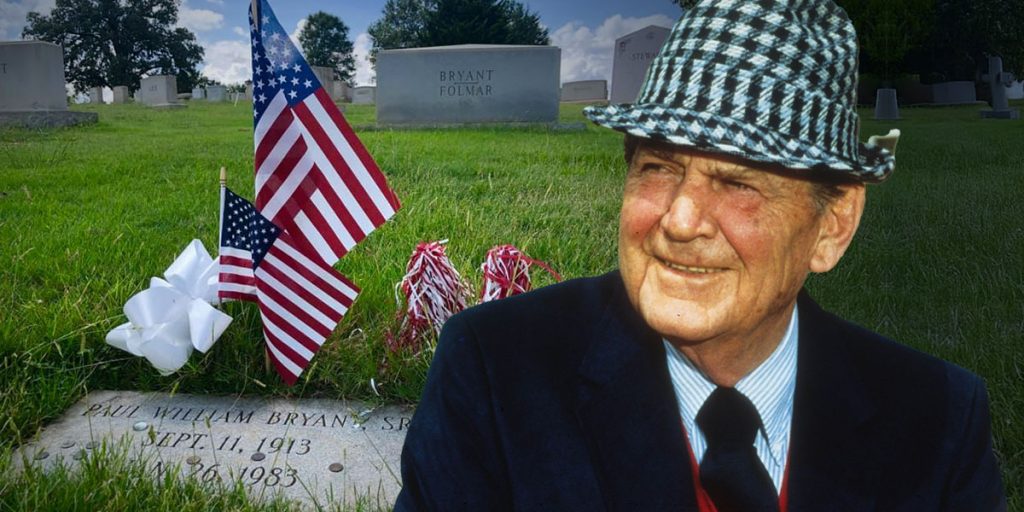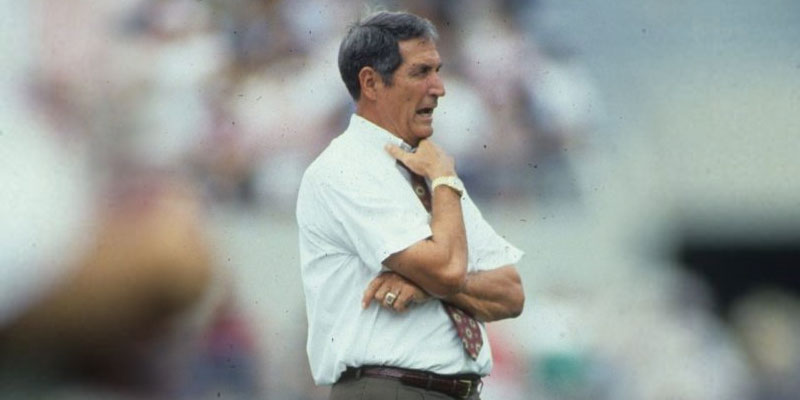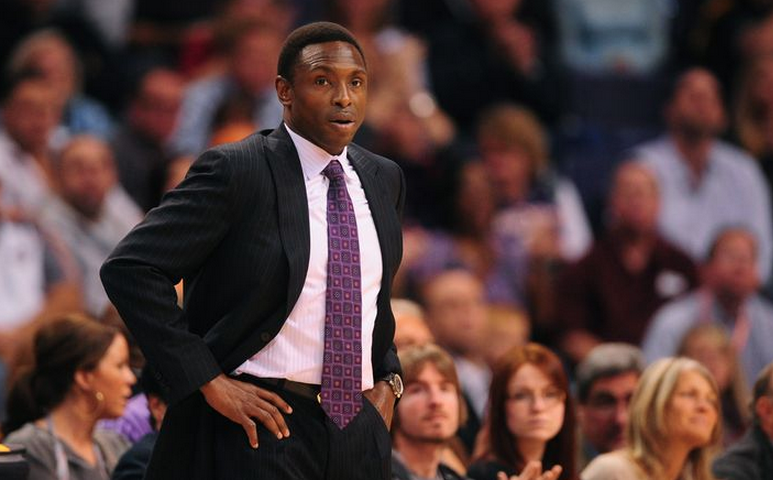
After graduating from Gadsden High School in 1966, Danny Ford went on to become an All-SEC tackle at the University of Alabama under the tutelage of coach Paul “Bear” Bryant. That alone is enough to make him football royalty in the state of Alabama, but Ford always set his sights on bigger goals in the future.
He graduated from UA with a degree in industrial arts and a masters degree in education before returning to football as an assistant coach for his alma mater, then Virginia Tech, then Clemson.
He quickly climbed up the ranks, landing the Clemson head coaching job in 1978 at the ripe old age of 31. His team finished 10-1 in his first season, beat Ohio State in the Gator Bowl and was ranked No. 7 in the final AP poll of the year. The game is most remembered as famed OSU coach Woody Hayes’s last for the Buckeyes. He punched Clemson guard Charlie Bauman during the game and was fired the next day after 28 seasons.
Three years later Ford led Clemson to the promised land. The Tigers won the 1981 National Championship by defeating Nebraska in the Orange Bowl to finish the season 12-0. At 34 years old, Ford was — and still remains — the youngest head football coach to ever win a National Championship.
After NCAA violations that mostly occurred under his predecessor came to light, Clemson was placed on probation for three years, but Ford stuck with the program and led them back to prominence with three straight ACC titles from 1986 to 1988. He racked up the wins during the 1980s, finishing the decade with a 96–29–4 (.760) record.
But in 1990, his relationship with the Clemson administration soured, and he resigned. He moved on to the University of Arkansas in 1992, but only coached the team for five years before leaving Fayetteville.
Then the man who had once been the fastest rising coach in college football history seemingly fell off the face of the Earth.
With Clemson back at the top of the polls this year, USA Today tracked down the now 67-year-old coach Ford, finding him where he has been for most of the past two decades he’s spent outside of the spotlight: on his 174-acre farm in Clemson, South Carolina.
When asked how his life would have been different if he had continued coaching for the last 17 years, Ford has a simple answer: “I’d probably have been dead by now.”
He said he was shocked that University of Missouri football players were allowed to boycott their games this year in an effort to force the school president to resign. He also could not believe a star player on another team, whom he did not mention by name, had been allowed to publicly bash his coaches without being disciplined.
“He wouldn’t have the pleasure to play again if I was coaching,” Ford told USA Today. “We’d have his equipment out of the room before then.”
He had a pacemaker put in this year, and now calls coaching “a young person’s occupation.” And in spite of flirting with a handful of jobs over the years, he has largely retreated to his farm, which fittingly sits on “Refuge Road.”
So why did the youngest coach to ever win a National Championship exit the coaching profession before he turned 50?
Ford and his wife, Deborah, have four children, and she suggested the strain on their family had “became intolerable. Too much pressure. Too little privacy.”
A family friend who attended Clemson around the time Ford left coaching for good recalls the reason even more specifically.
“He was quite a legend when I went there 20 years ago,” Mardie Sharp wrote on Facebook. “I saw a really sweet post from his daughter that said she felt like he chose them over the football.”
At a time of year when many of us gather with our families for the holidays, it seems particularly fitting to celebrate a man who stepped out of the limelight to make sure his family could do the same.
Merry Christmas, Coach Ford.
Christmas is the perfect time to remember why this Alabama football legend walked away from it all https://t.co/D1i6pcTGUo
— Cliff Sims (@Cliff_Sims) December 8, 2015












